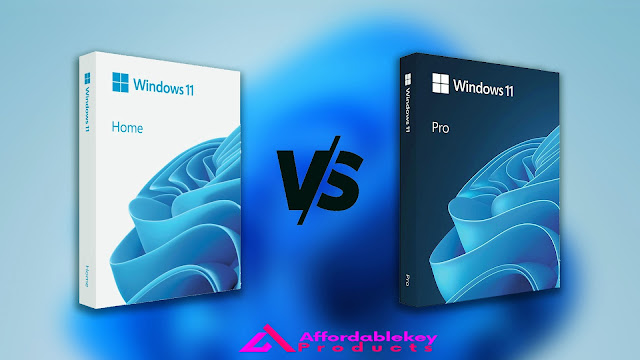Windows Home Premium vs. Professional: Unveiling the Differences
When it comes to choosing the right operating system for your computer, the decision can be overwhelming. Windows, being one of the most popular choices, offers various editions tailored to different user needs. In this blog post, we'll dive into the comparison between Windows Home Premium and Professional editions, shedding light on their unique features and helping you make an informed decision.
Target Audience and Licensing:
Windows Home Premium: Designed for home users and enthusiasts, this edition is ideal for individuals who primarily use their computers for personal tasks like web browsing, media consumption, and basic productivity. It allows installation on a single PC.
Windows Professional: Geared towards small businesses and advanced users, the Professional edition offers additional features suitable for work environments. It supports domain connectivity and includes tools for enhanced security and management. It permits installation on multiple PCs.
Remote Desktop Connection:
Windows Home Premium: This edition allows you to connect to other computers using Remote Desktop, but it can only serve as a client, meaning you can access other PCs remotely, but you cannot allow others to connect to your computer.
Windows Professional: In contrast, the Professional edition supports both incoming and outgoing Remote Desktop connections. This feature is beneficial for businesses or individuals who need to access their desktops remotely or provide technical assistance to others.
Domain Join:
Windows Home Premium: In a home setting, connecting your computer to a domain is usually unnecessary. Windows Home Premium doesn't include the option to join a domain, as it is primarily intended for personal use.
Windows Professional: Businesses, on the other hand, often require domain integration to centralize user management and enhance network security. The Professional edition includes the domain join feature, allowing users to connect their computers to a domain and benefit from centralized administration.
BitLocker Encryption:
Windows Home Premium: BitLocker, a disk encryption tool, is not available in the Home Premium edition. If you have sensitive data that needs protection, you'll need to explore alternative encryption solutions or consider upgrading to a higher edition.
Windows Professional: Recognizing the importance of data security, the Professional edition offers BitLocker, enabling you to encrypt your drives and safeguard your information. This feature provides an additional layer of protection, particularly useful for businesses and individuals dealing with confidential data.
Advanced Networking and Backup Options:
Windows Home Premium: The Home Premium edition supports standard networking capabilities, including file sharing, printer sharing, and wireless network setup. It also includes a simplified backup tool for safeguarding your personal files.
Windows Professional: Building upon the networking features of the Home Premium edition, Windows Professional offers additional networking options such as group policy management, remote desktop hosting, and support for backup to network locations. These features are particularly valuable for small businesses seeking more advanced network management capabilities.
Conclusion:
Choosing between Windows Home Premium and Professional depends on your specific needs and requirements. If you primarily use your computer for personal tasks, Home Premium offers a cost-effective solution with essential features. However, if you require advanced networking capabilities, domain integration, or enhanced security measures, the Professional edition becomes the preferred choice.
Ultimately, it's important to evaluate your usage patterns, consider future scalability, and make an informed decision that aligns with your computing needs. Whether you're a home user or a business professional, Windows provides editions tailored to cater to a wide range of users, ensuring you have the right tools at your disposal.



%20product%20keys_.jpg)



%20for%20a%20business%20laptop_.jpg)